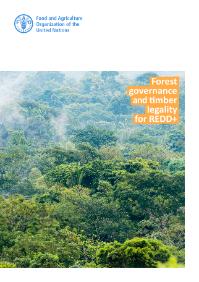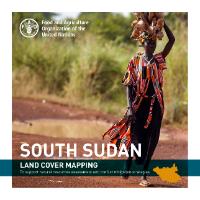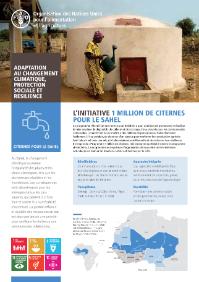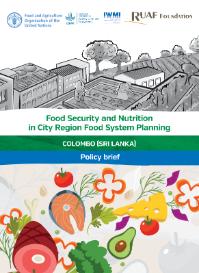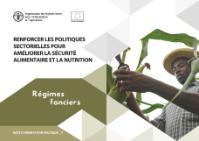Focal point
Location
The Food and Agriculture Organization of the United Nations leads international efforts to defeat hunger. Serving both developed and developing countries, FAO acts as a neutral forum where all nations meet as equals to negotiate agreements and debate policy. FAO is also a source of knowledge and information. We help developing countries and countries in transition modernize and improve agriculture, forestry and fisheries practices and ensure good nutrition for all. Since our founding in 1945, we have focused special attention on developing rural areas, home to 70 percent of the world's poor and hungry people.
Members:
Resources
Displaying 326 - 330 of 5073Forest governance and timber legality for REDD+
The successful reduction of emissions from deforestation and forest degradation requires forest governance to be efficient, effective and equitable. The concept of forest governance has evolved to engage public and private actors at many levels to make and enforce decisions that are clear, transparent, just, and lead to the sustainability of forests and the fair distribution of the benefits derived from their use. Forest governance also refers to the institutional, policy and legal dimensions addressing both direct and indirect drivers of forest loss and degradation.
South Sudan Land cover mapping
The new land cover dataset will allow mapping of natural resources, human settlements and human activities in South Sudan and within neighboring countries. It will represent the most innovative and updated dataset developed for South Sudan, integrating high-resolution multi-temporal imagery, object-based image analysis
and machine-learning algorithms and LCML to support the Natural Resource Management strategy and land use planning.L'initiative 1 million de citernes pour le Sahel
Au Sahel, le changement climatique accentue l’irrégularité des pluies et les chocs climatiques, tels que les sécheresses répétées et les inondations. Les conséquences sont désastreuses pour les ménages ruraux les plus pauvres, qui peinent à y faire face et voient leur vulnérabilité s’accentuer. Les femmes sont généralement les plus touchées. La gestion efficace et durable des ressources en eau est plus que jamais une priorité pour améliorer la résilience des communautés vulnérables.
Food Security and Nutrition in City Region Food System Planning - Sri Lanka
Colombo Municipal Council (CMC) is located in the center of Kandy-Colombo-Galle urbanization belt, where it forms the largest Local Authority (LA) of Sri Lanka and one of the oldest in South Asia, established in 1865. Together with 12 other LAs, it forms part of the Colombo district, which is one of three districts (Colombo, Gamapaha and Kalutara) of Sri Lanka’s most populated Western Province, which hosts the largest part of the urbanization belt.
Renforcer les politiques sectorielles pour améliorer la sécurité alimentaire et la nutrition
La terre, les pêches, les forêts et d'autres ressources naturelles est crucial pour les moyens de subsistance et les pratiques sociales, culturelles et religieuses. La plupart des habitants des zones rurales des pays en développement ne disposent pourtant d'aucune forme de documentation pour protéger leurs droits à la terre et aux ressources naturelles, ce qui met en péril leurs moyens de subsistance ainsi que leur sécurité alimentaire et nutritionnelle.







